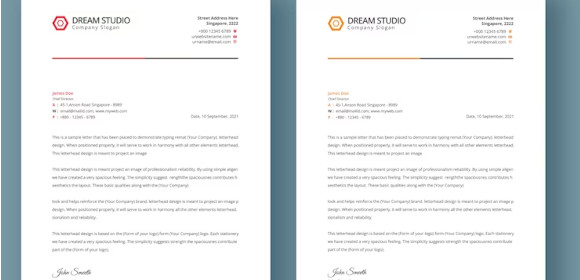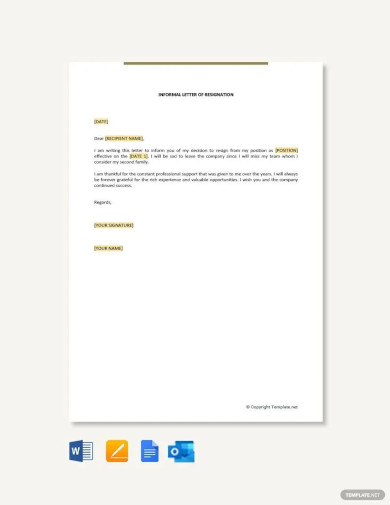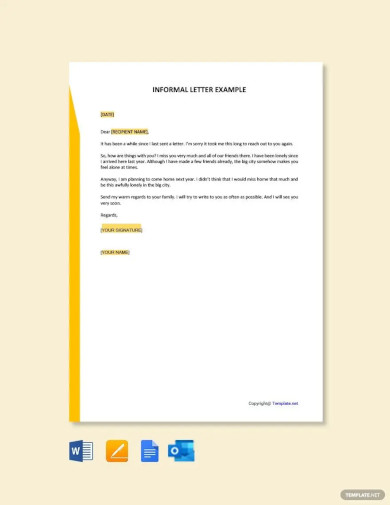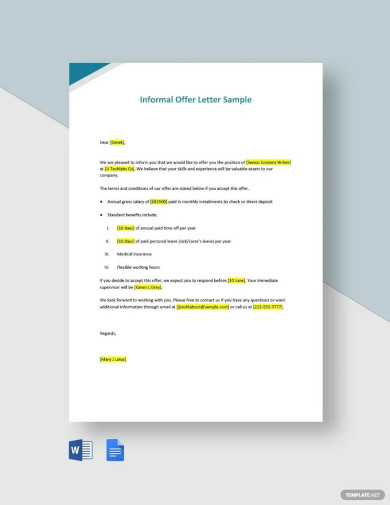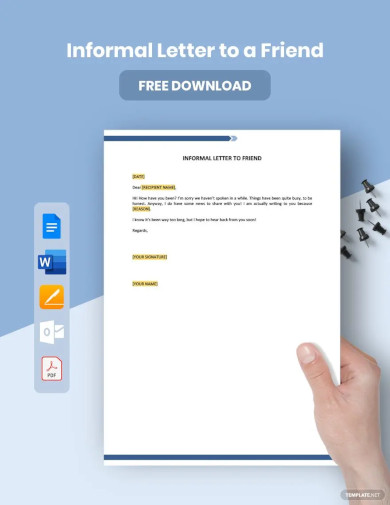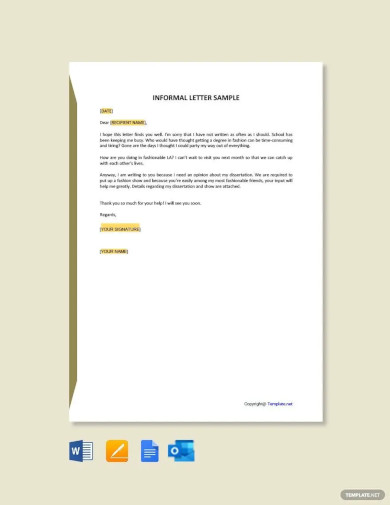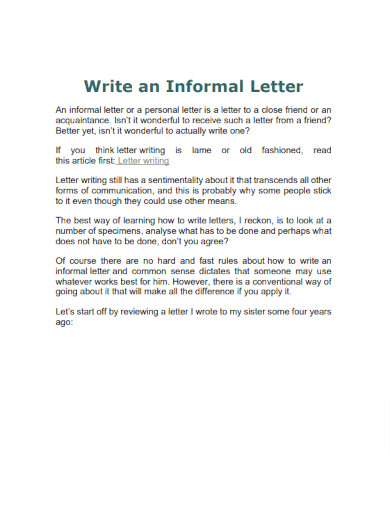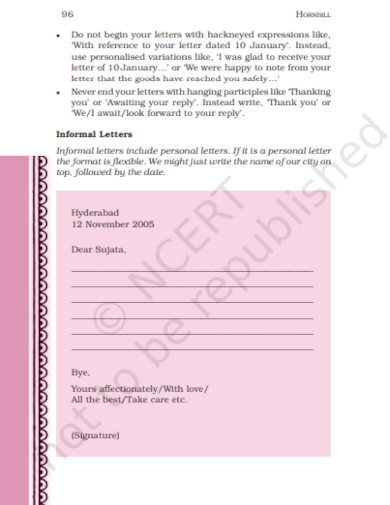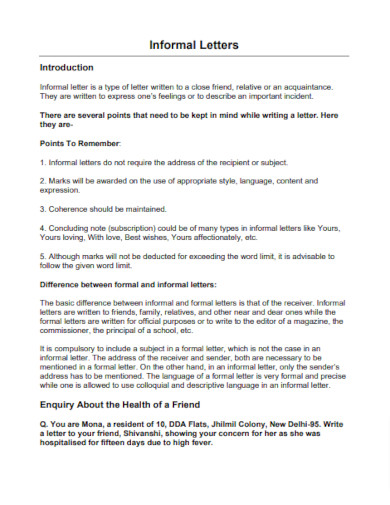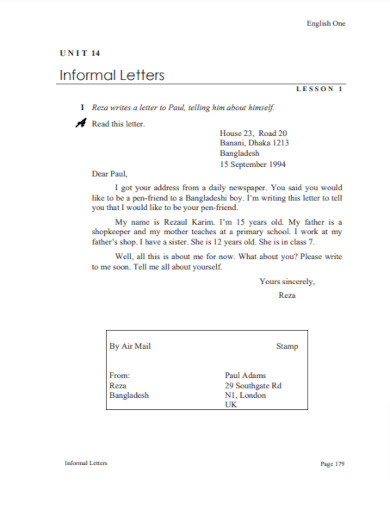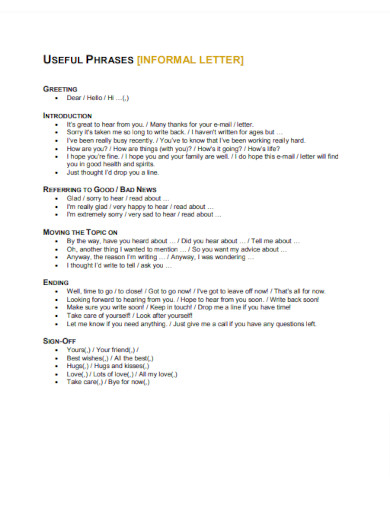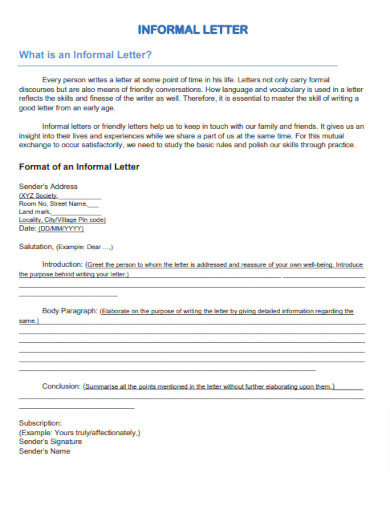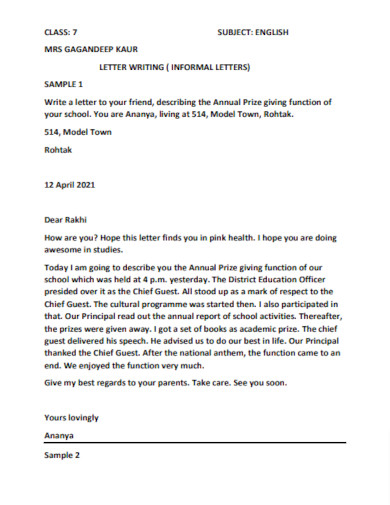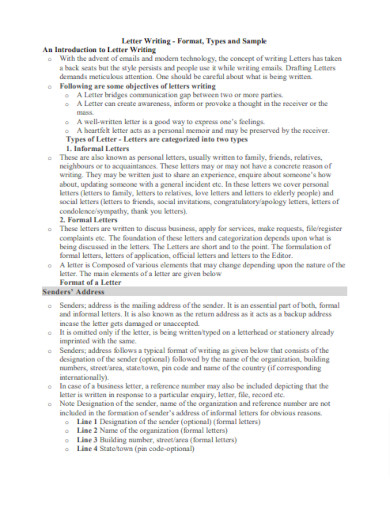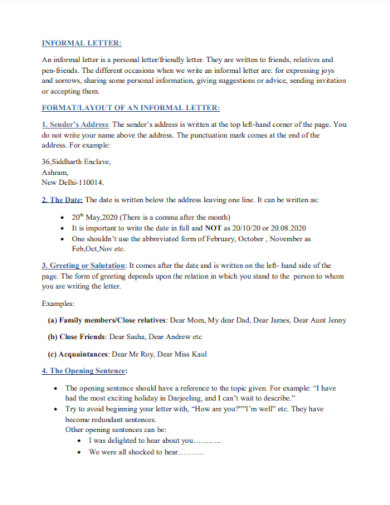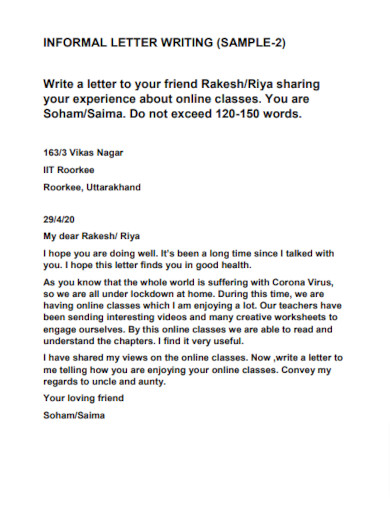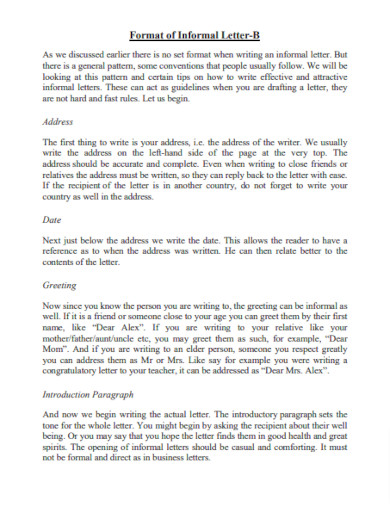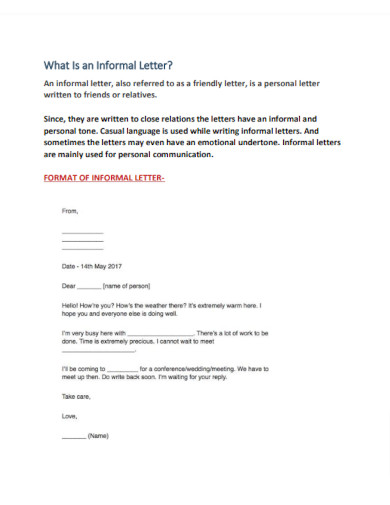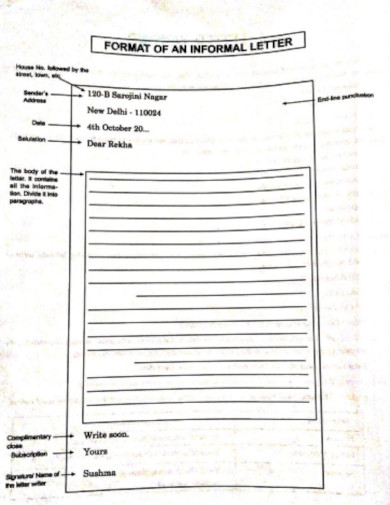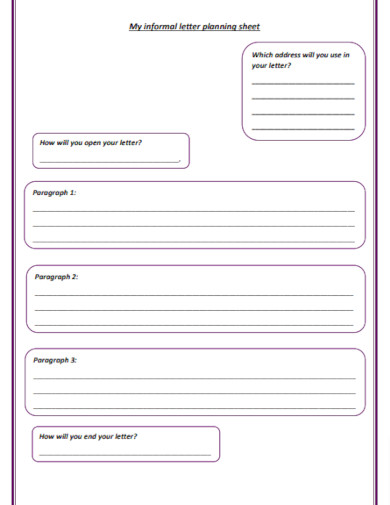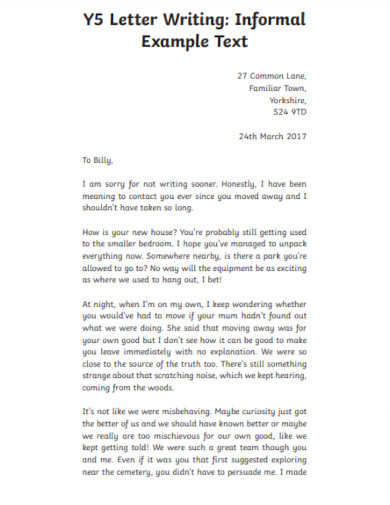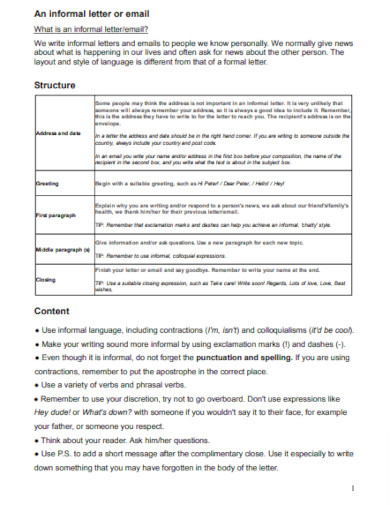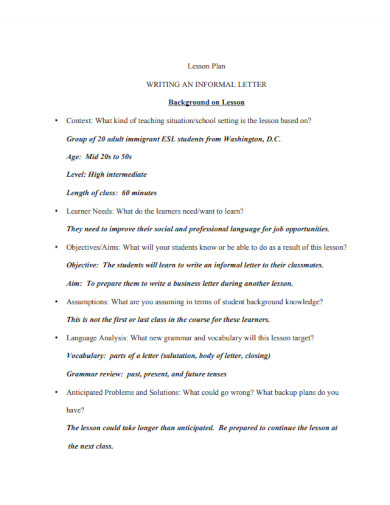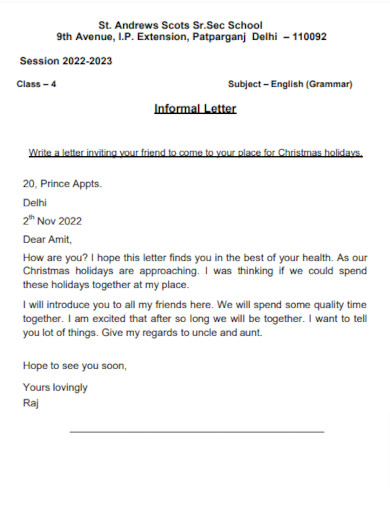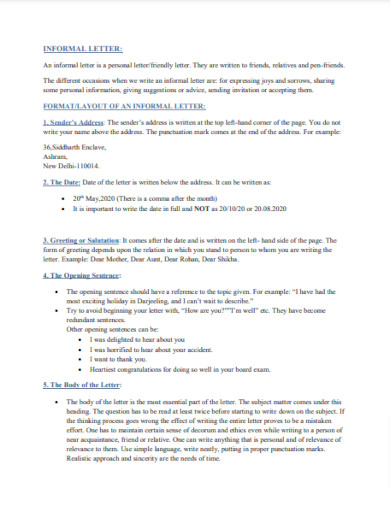23+ Informal Letter Examples to Download
Letters have been used as a means of communication for centuries, and while the rise of technology has made emailing and texting more popular, there is still something special about receiving a letter in the mail. Informal letters, in particular, offer a way to connect with someone on a more personal level, and they can take many forms. From a quick note to a friend to a letter of explanation, the format and content of an informal letter can vary widely. In this article, we’ll explore some examples of informal letters and provide tips on how to format them.
Informal Letter of Resignation
Informal Letter Example
Informal Offer Letter Sample
Informal Letter to a Friend
Informal Letter Sample
Sample Informal Letter
Simple Informal Letter
Basic Informal Letter
Draft Informal Letter
Editable Informal Letter
Format of an Informal Letter
Printable Informal Letter
Standard Informal Letter
Modern Informal Letter
Informal Letter Writing
Format of Informal Letter
Sample Format of Informal Letter
Basic Format of an Informal Letter
Informal Letter Planning Sheet
Informal Letter Example Planning Sheet
Informal Letter or Email
Blog Lesson Informal Letter
Informal Letter Invitation
Layout of an Informal Letter
What is an Informal Letter?
An informal letter is a type of communication that is less structured and more personal than a formal business letter. While there are certain conventions that should be followed when writing any type of letter, an informal letter is more flexible and can take on many forms. Some common types of informal letters include personal letters to friends and family, letters of thanks or appreciation, and letters of condolence or sympathy. Unlike a formal business letter, an informal letter may use a more conversational tone and include personal anecdotes or details.
How to Write an Informal Letter
Here are simple steps to write a friendly and engaging informal letter that will make a positive impact on the recipient.
Step 1: Choose your recipient
Before you start writing your letter, think about who your recipient will be. Is it a friend, family member, or acquaintance? This will help you tailor your language and tone to the person you’re writing to.
Step 2: Decide on the purpose of the letter
Are you writing to catch up with a friend, say thank you, or offer congratulations? Having a clear purpose in mind will help you focus your writing and make your letter more effective.
Step 3: Begin with a friendly greeting
Start your letter with a warm and friendly greeting, such as “Dear [Name],” or “Hi [Name]!”.
Step 4: Introduce yourself (if necessary)
If you haven’t spoken to your recipient in a while, or if they don’t know you very well, it’s a good idea to briefly introduce yourself in the opening lines of your letter.
Step 5: Use a conversational tone
Unlike formal business letters, informal letters should have a more casual, conversational tone. Write as if you were speaking to the person face-to-face, and don’t be afraid to include personal anecdotes or jokes (if appropriate).
Step 6: Be specific and engaging
Whether you’re catching up with an old friend or offering congratulations, be specific and engaging in your writing. Talk about specific events or experiences, ask questions, and show your genuine interest in the recipient’s life.
Step 7: Close with a warm and friendly ending
End your letter with a friendly closing, such as “Take care,” or “All the best,” and sign off with your name.
Step 8: Check for errors
Before sending your letter, make sure to proofread it for any spelling or grammar errors. You want to make sure that your letter is easy to read and error-free.
Step 9: Format your letter
Finally, format your letter with the appropriate headings and sections, such as the date, recipient’s address, and your own address. Make sure to include a letter envelope with the recipient’s address and a return address on the back.
FAQs
What is the format of an informal letter?
While there is no specific format for an informal letter, it should include the basic elements of a letter, such as a heading with the date, a greeting, body paragraphs, and a closing. It should also be written in a conversational, casual tone.
How should I address an informal letter?
The address of an informal letter depends on who you’re writing to. For example, you might address a friend as “Dear [Name],” or use a more casual greeting such as “Hi [Name]!” If you’re unsure, it’s always better to err on the side of being too formal.
How do I end an informal letter?
The ending of an informal letter should be warm and friendly. You might use a closing such as “Take care,” “All the best,” or “Love,” depending on your relationship with the recipient. Sign off with your name, and make sure to include an envelope with the recipient’s address and a return address on the back.
In conclusion, whether you’re sending a quick note to a friend or writing a letter of explanation, an informal letter can be a powerful tool for connecting with others. By following some basic guidelines for formatting and content, you can create a letter that is both personal and professional. Remember to include the necessary elements, such as the letter address and envelope, and tailor your language and tone to the recipient. With a little creativity and care, an informal letter can be a meaningful way to stay in touch with the people who matter most to you. For more ideas and personal letter examples, check out the related articles linked in this post.


